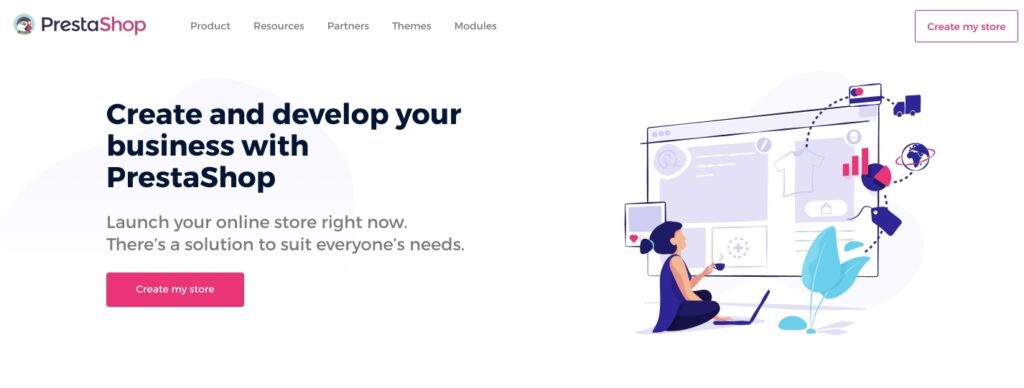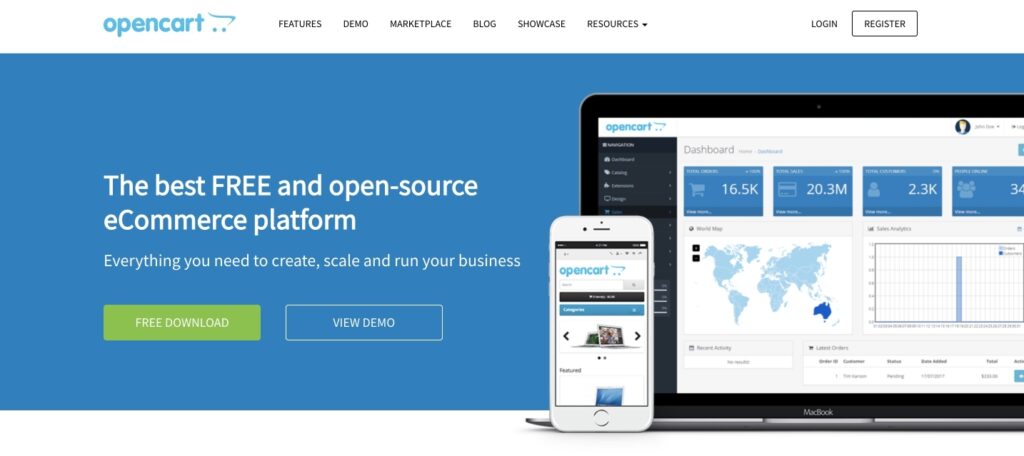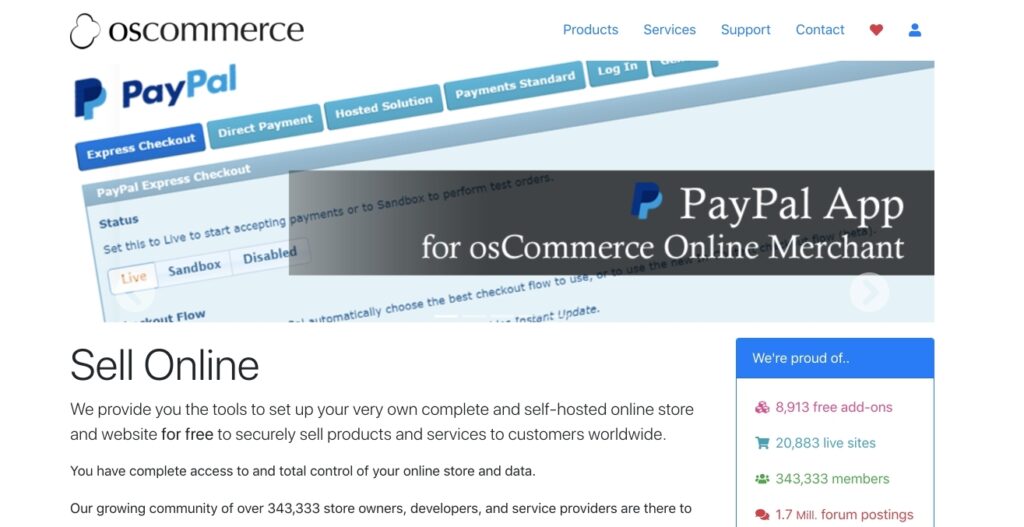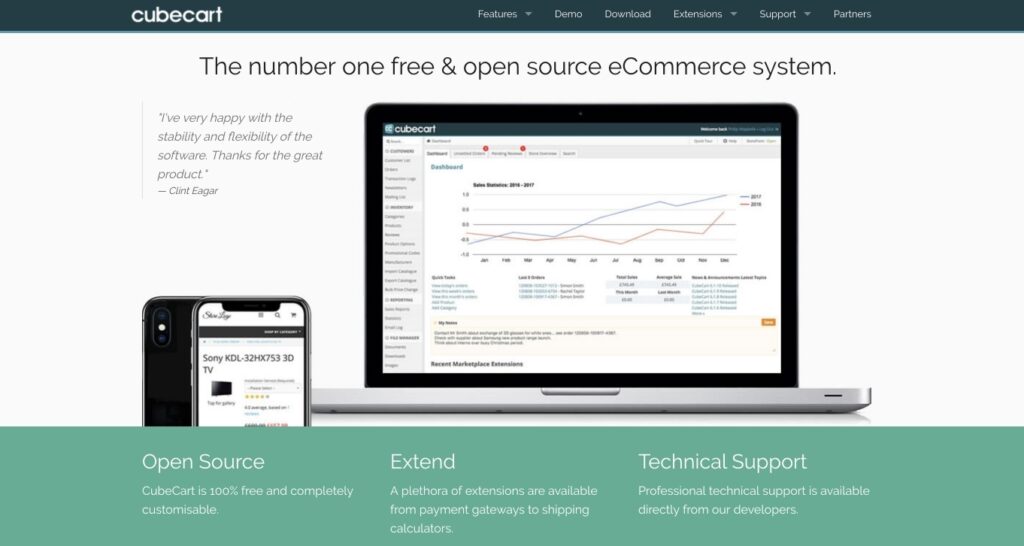Home — Borzo India — Borzo India Blog — 10 Best eCommerce Platforms in 2020 (updated)
10 Best eCommerce Platforms for Your Business

Getting goods from the physical store was becoming tiresome. Sometimes you would waste your energy and time visiting the place only to find that whatever you were looking for was unavailable. All that changed when the world was introduced to ecommerce — a better, faster, and convenient way to shop. Nowadays, all you have is to do is purchase whatever you want from the comfort of your living room and wait for your parcel to be delivered right to your doorstep.
Numerous ecommerce platforms have cropped up, enabling interested parties to build online stores and manage them. This article takes a detailed look at the top ecommerce platforms. Despite having a similar objective, these platforms have distinct features and functionalities to suit a range of needs.
Table of Contents:
Best eCommerce platforms for online business
Building an online business website can be quite a challenge, especially if you have no idea how to proceed. This is why you need an ecommerce platform. These online store builders will enable you to come up with detailed online stores that have everything required to run efficiently. Some of the best ecommerce platforms include:
WooCommerce

This is a free WordPress plugin. WooCommerce was developed to enable any WordPress website owner to transition his or her website into an online store easily and conveniently. This means that it is not a standalone ecommerce platform. The plugin comes with a number of features that you will find very useful, including a shopping cart and a completely secure payment processor. You will, however, be required to pay for the cart. The platform is very simple to use thanks to the WordPress dashboard it uses. WooCommerce is considered the best ecommerce platform in the world for anyone who wants to develop a small but active online store. It is a highly rated ecommerce platform, but advancing your online store will require a lot of effort and plenty of plugins.
Pros:
- Comes with one click selling app
- Very good for SEO
- Has a huge number of service providers
- Uses CMS for WordPress to launch your online store
- Comes with great themes and extensions
Cons:
- Needs a lot of extensions
- Can be difficult to troubleshoot
PrestaShop

PrestaShop is one of the best open source ecommerce platforms on the planet. The online store builder is free although you will be required to pay for hosting. It can be used to create and manage mid-size and large online stores conveniently. PrestaShop is a standalone application, and this means that you get a number of great features, including a number of payment options with plenty of customizable checkouts. To ensure that you stay informed about your online store, PrestaShop offers analytics and as well as customer support, and the best part is that you will not require extensions for them.
Pros:
- Both free and flexible.
- Great customer support.
- Comes with great SEO.
- Provides analytics.
- Has a number of apps.
- Comes with customizable themes.
- Has multiple languages and currencies.
Cons:
- Can be costly.
- Can be a bit slow at times.
OpenCart

If you are wondering how to make ecommerce websites that are not only perfect but also fully functional, then try OpenCart. This is among the best open source ecommerce platforms that come with a cloud version. It has everything needed to build and manage an online store; including product reviews and ratings so that you can learn how your customers feel about your products. The builder supports multiple currencies, and if you want to get acquainted with important data, you can always check the dashboard. It also supports multiple online stores which can be operated with one interface. The site also comes with many customizable themes. All you have to do is choose the theme that best suits your needs and apply.
Pros:
- Comes with powerful SEO.
- Easy to use.
- Has several themes.
Cons:
- Doesn’t offer much in terms of built-in features.
AbanteCart

AbanteCart is an average option for anyone who wants an ecommerce platform that is easy to use. It comes with great features and a moderate amount of built-in functionality. This won’t, however, prevent you from coming up with a good ecommerce website. Unlike other ecommerce platforms, AbanteCart has limited plugins and themes. It is, however, a good option for anyone who doesn’t want to waste too much time coding. AbanteCart also has a very intuitive dashboard that offers one of the easiest ways to add products to your platform. It is the only one of its kind. AbanteCart might not be the mightiest option, but it is simply the best when it comes to creating a good ecommerce website that run effectively.
Pros:
- Easy to use.
- Comes with built-in SEO.
- Very simple to add products.
- Comes with a number of themes.
Cons:
- Only good for building small ecommerce website.
osCommerce

osCommerce is among the most preferred ecommerce platforms. It has more than 12,000 registered online stores with numerous people still on the verge of joining the osCommerce community. The platform comes with a number of basic features that run efficiently on a small ecommerce website. It is often considered as a platform for those people who want to try out the ecommerce business. It is very easy to handle, and it is also scalable. The interface is, however, quite outdated and not as thrilling as those of other ecommerce platforms. However, there is a huge number of plugins and add-ons. The platform helps you create online stores faster and run them smoothly without any problems. Once you start filling the website, you may experience some difficulties handling it, so try to keep the website as small as possible.
Pros:
- Very easy to use.
- Supports a number of plugins.
- Has a very large community.
Cons:
- The platform is a bit outdated.
CubeCart

CubeCart is one great ecommerce platform that offers an interactive interface for building ecommerce websites. But don’t be fooled by its simple outlook because you will definitely need a learning curve to understand it. CubeCart is among some of the best open source ecommerce platforms due to its remarkable features. The platform offers good technical support, unlimited product categories, and can handle an unlimited number of customers. Setting up CubeCart is easy, and it also allows swift upgrades without having to rewrite your code. The security is great; your data is safe whenever you use this ecommerce platform to build and manage your online store.
Pros:
- Has great support.
- Allows sending of newsletters to customers.
- You can edit images easily.
- Allows easy access to extensions.
- Has an intuitive interface.
Cons:
- Has a small selection of extensions.
Open Real Estate

Open real estate is the best ecommerce platform of its kind. Like the name suggests, the ecommerce website builder lets you create online stores where you can rent and sell properties. It gives your customer a very easy way to find properties within a given area. The importance of this ecommerce platform is vividly seen in the search feature, which allows deep searches that most other websites can’t manage. You can also at properties within a certain area and create a profile for an individual property. There are various modules and themes to customize your website and make it even more appealing. You will, however, be required to pay for the modules. The ecommerce platform is freely available, and anyone in the real estate industry will find it to be the best and cost-effective way to come up with an amazing real estate website. With this ecommerce platform, you will get more than just a basic ecommerce website.
Pros:
- Comes with great themes and modules.
- Has a great search feature.
- Allows creation of individual property pages.
- Very good at creating real estate websites.
Cons:
- The modules are costly.
Joomla

Joomla works just like WooCommerce online store builder. This is because the ecommerce platform does not build a whole online store but makes use of an existing Joomla website. All you have to do is get the best free extension and use it to transition your website into an online store. It is quite easy to use and offers great functionality. The platform offers mobile and social site support with a number of upgrades readily available. Its popularity is down to it ability to create lightning-fast ecommerce websites. Joomla also has a very powerful shopping cart extension. One of the widely used free Joomla platform is the J2Store. If you want to unlock even more features, you will have to use the paid extension. With Joomla, you will be able to transform your website to an online store in a matter of minutes.
Pros:
- Easy to use.
- Has great speed.
- Comes with a number of extensions.
- Very easy to add products.
Cons:
- For great features, you will need to purchase extensions.
Shopify

Shopify is one of the most popular ecommerce platforms, and it has been used to build thousands of existing online stores. This is because the online store builder offers a very simple way to design an ecommerce website. There is a monthly charge depending on the number of features you use, but it has limited customization options, which means it is popular with SMB ecommerce merchants. It also has SEO functions such as meta description and title tags, and it comes with a good number of free themes. The best part is that you don’t require any codding to customize them. It is simply the best ecommerce platform.
Pros:
- Easy-to-use interface.
- Comes with a single click selling app.
- Has a fast loading time.
- Creates appealing ecommerce websites.
Cons:
- Weak SEO
Conclusion
From the above information, it is unquestionably true that ecommerce platforms offer a simple and fast way to build ecommerce websites. This is because each platform possesses distinct features that make it very unique. There are, however, other online store builders that come with a much-advanced interface and multiple themes to create appealing ecommerce websites. Either way, they have all revolutionized the way ecommerce websites are built.
Borzo Team
For Business with ❤️

